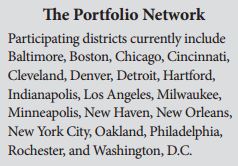I have come to hate the word autonomy when it is used in the context of education. Why?
Quite simply, because it is the most overplayed word in the world of “ed reformers”. Maybe Indianapolis ed reformers, especially.
Everyone reading this blog probably knows how language can be carefully massaged and crafted until it means something entirely agenda-specific. This is precisely what has happened to the word, and the concept, of school autonomy.
Let me explain.
On the face of it, the concept of school autonomy is a very promising one. So promising, in fact, that I used the word quite a bit in my 2012 campaign to describe a utopian ideal where teachers, principals, students, parents (AKA the school community) had a great deal more influence over…everything. Staffing, Curriculum, Title I Funding – to name a few. To me, the word autonomy connoted a school community freed from many of the top-down processes of the bloated IPS central office. Sounds pretty good, right? I thought so.
As time has passed and I’ve gained experience in my role as a commissioner, I’ve come to learn that autonomy is really a code word for something much darker and more sinister. The word has gradually been co-opted. Instead of reflecting a wide variety of options that could be weighed carefully and selected based on what suits our city’s needs, the ed-reformers in this city use the word ‘autonomy’ to refer to anything associated with the PORTFOLIO SCHOOL MODEL, which is the true agenda of the current IPS board majority.
THE PORTFOLIO SCHOOL MODEL is the brainchild of the Center for Reinventing Public Education (CRPE), run by Paul T. Hill – whose educational background is in political science, not education.
Since the current board majority and administration have been doing the bidding of the powers-that-be in Indianapolis, the Portfolio School Model has already begun to be implemented here in IPS, despite the fact that true discussions on “autonomy” have not taken place yet (The first meeting of the ad-hoc committee takes place Friday, July 3rd at 1:00pm at the Ed Center. Yes, it is an IPS holiday. I know, crazy, right?) Here is proof from the CRPE website that the portfolio model is already being implemented in our city, without any input from IPS stakeholders whatsoever:
And this, from a CRPE white paper: 
Dear constituent (taxpayer, parent, teacher, student, resident of Indy)…do you see this as a problem? The utter foundation of public schooling as you know it is being shifted without your knowledge, let alone your input. Remember in my last blog post when I shared with you that “the citizens of the District are to be viewed as the ownership and clients of IPS, to whom the Board is primarily responsible and for whom the Board acts”? This comes directly from IPS policy, and I am giving you a direct example of a violation of that policy.
Kenneth Saltman of the National Education Policy Center (2010) has conducted research on the portfolio school model and this is his conclusion:
some large urban districts, and promoted by the education reforms proposed as
part of the Obama administrations Race to the Top initiative, no peer-reviewed
studies of portfolio districts exist, meaning that no reliable empirical evidence
about portfolio effects is available that supports either the implementation or rejection
Nor is such evidence likely to be forthcoming.
Even advocates acknowledge the enormous difficulty of designing credible
empirical studies to determine how the portfolio approach affects
student achievement and other outcomes. There are anecdotal reports
of achievement gains in one portfolio district, New Orleans. The New Orleans results,
however, have been subjected to serious challenge. Extrapolation of research on the
of these elements within the portfolio model.
Moreover, even when the constituent elements are considered as a way to predict the
it will produce gains in either achievement or fiscal efficiency. Finally, the policy writing
In light of these considerations, it is recommended that policymakers and administrators
recommended that before adopting such a strategy, decision makers ask the following questions:
portfolio model offers advantages compared to other reform models?
based accountability) have not produced advantages outside of portfolio systems, what
is the rationale for expecting improved outcomes as part of a portfolio system?


